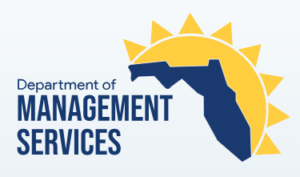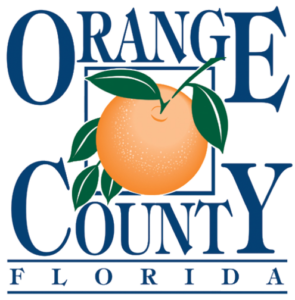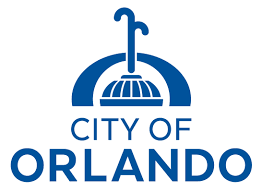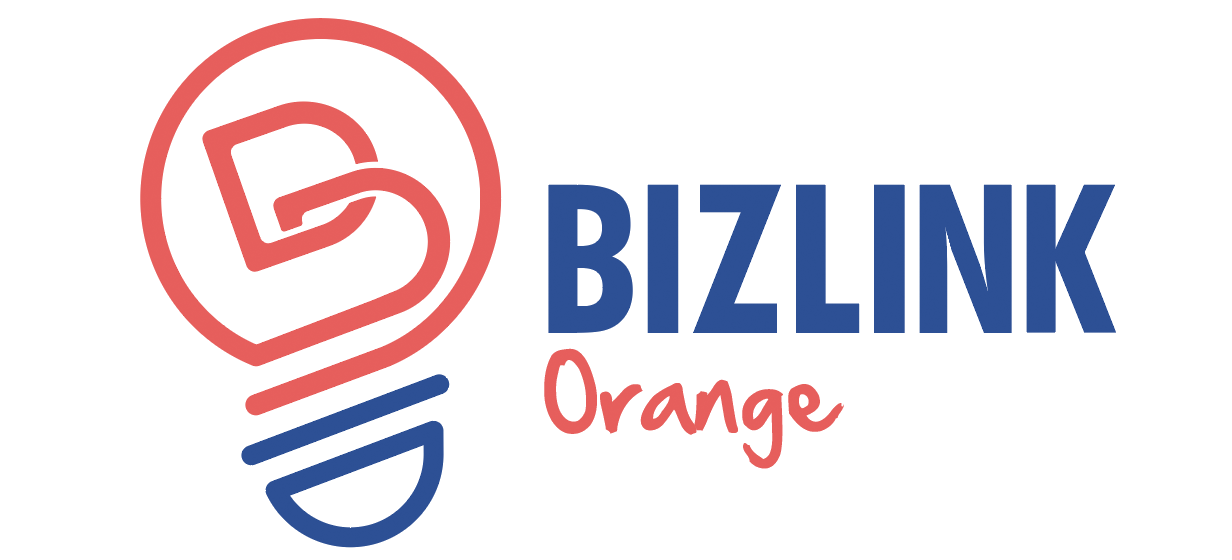Becoming a Certified Business
Find and win more contracts by getting certified!
What does it mean to be a certified business?

Many government, educational and large private sectors companies want to ensure that a portion of their contracting dollars go to M/WBE, Veteran, LGBT, Small and Disadvantaged business owners.
It’s out of this desire that some of these entities have established their own “certification” programs that M/WBE, Veteran, LGBT, Small and Disadvantaged business owners can apply for if they meet certain criteria. The most common types of certification categories are listed below.
It’s important to note that not all local governmental organizations, educational institutions or large private sector businesses offer certification programs. However, it might be advantageous to inquire if they have any “supplier diversity” initiatives prior to bidding any contracts if you feel you fall into the categories listed below.
What if I am certified with one organization, will that mean my certification will be accepted by another?
Having state level certifications often helps to reduce the paperwork at the city and county level.
Benefits of Certifying your Business
Given that many governmental, educational and large private sector companies want to spend a portion of their contract dollars with M/WBE, Veteran, LGBT, Small and Disadvantaged business owners they will often create programs that will allow your company to be identified as a certified business during their bidding process. These processes help ensure a percentage of their organizations contracting dollars go to qualified disadvantaged business owners.
The Federal 8a Certification for example is a hidden “oil well” in government contracting. It provides tremendous opportunities for drastically increased revenues and profits. It is widely considered to be the very best small business program. It opens the most doors and provides the greatest opportunities, such as sole source awards, set asides & preferential treatment in contracting. However, the downside is it’s one of the more difficult certification applications to go through and obtain. You will want to ensure you have a valid product and/or service that the Federal Government would be willing to buy at the quantities that they would need before you embark on 8a certification.

Florida Certified Business Enterprise (CBE)
Your business must meet the minimum eligibility requirements* necessary to become a woman-, veteran- or minority-owned Florida Certified Business Enterprise (CBE).
- Be legally registered to do business in Florida as a for-profit organization (registration through the Department of State).
- Be based in Florida.
- Be owned and managed by a resident(s) of Florida.
- Be 51 percent owned and managed by a woman, veteran, or minority who is a U.S. citizen or permanent resident alien.
- Be engaged in commercial transactions (currently doing business).
- Be registered in MyFloridaMarketPlace.
- Have a net worth of less than $5 million.
- Have 200 or fewer full-time permanent employees.
- Have a professional license, if required by the industry, in the name of the woman, veteran, or minority business owner.
Benefits of Being a Florida Woman-, Veteran-, Minority-owned Business Enterprise
For a Florida-owned small business to verify ownership by a local woman, veteran or minority, holds great importance to their community in today’s business world. More so, state woman-, veteran- or minority-owned business enterprises are provided these benefits (WBE, VBE or MBE):
- Women-, veteran- and minority-owned small businesses that are certified by the state are the first tier of businesses referred to state agencies seeking to include supplier diversity as a part of their purchase order and contract opportunities.
- Listing of newly certified businesses are also highlighted on the Office of Supplier Diversity homepage.
- The Certified Business Enterprise Vendor Directory on My Florida Marketplace lists only state certified woman-, veteran- or minority-owned business enterprises. State agencies, state universities, regional and local government entities and even private businesses use this directory to find state-vetted woman-, minority- and veteran-owned businesses to diversify their vendor dollars. A state certified vendor’s profile can be accessed by simply typing the company’s name, an applicable commodity code or brief description.
- Special emails and other information are disseminated to vendors who appear in the state’s database. This information could vary from contract opportunities to special events, networking activities and technical assistance training.
- Online Recertification has been extended to every two years to simplify the process for the applicable businesses. After two years of being certified, a vendor can self-recertify online.

Orange County and the City of Orlando programs application processes are very similar.
They hold an in-person workshops the 2nd Monday of each month 2:00PM – 4:00 p.m. at the National Entrepreneur Center that will walk you through both applications.

Certification Opportunities & Information
The minimum requirements to qualify as a Disadvantaged Business Enterprise – DBE Certification under the U.S. Department of Transportation’s Program are:
-
- Applicants, by a preponderance of evidence, must meets all requirements concerning group membership, including individual social and economic disadvantage, business size, ownership, and control as defined in the 49 CFR 26 Subpart D;
- The applicant firm must be fifty-one percent (51%) owned, capitalized, controlled and operated by one or more U.S. Citizens, or a legal resident (green card), who are socially and economically disadvantaged as defined below:
- Social Disadvantage means an individual who is a member of a presumed group or a woman;
- Economic Disadvantage means, in general terms, excluding the primary residence and ownership in the applicant firm, a socially disadvantage individual who does not have a personal net worth in excess of $1.32 million;
- Be a for-profit business, located in the United States;
- A firm’s three-year, average of annual gross receipts, may not exceed $28.48 million; however, post-certification, other small business size standards may apply;
- The acquisition of fifty-one percent (51%) business ownership by the eligible business owner(s) must be real, substantial and instep with the percentage (%) of ownership;
- An eligible business owner must holds the highest, executive office, be responsible for managing the firm’s day-to-day business and have a technical experience, in the firm’s primary business activity.
To be eligible to participate in the DBE program through Florida Dept. of Transportation you must meet the following:
- The firm is a for-profit business that performs or seeks to perform transportation related work (or a concession activity) for a recipient of Federal Transit Administration, Federal Highway Administration, or Federal Aviation Administration funds.
- The firm is at least 51% owned by a socially and economically disadvantaged individual(s) who also controls it.
- The firm’s disadvantaged owners are U.S. citizens or lawfully admitted permanent residents of the U.S.
- The firm meets the Small Business Administration’s size standard and does not exceed $23.98 million in gross annual receipts for DBE ($56.42 million for ACDBEs). (Other size standards apply for ACDBE that are banks/financial institutions, car rental companies, pay telephone firms, and automobile dealers.
To apply you can go to FDOT and select the DBE Certification Application
- Company has to be 51% owned and operated by an LGBTQ+ person.
If an LGBTQ+ owned business is a member of an affiliate chamber such as The Pride Chamber, they can become a certified BE and member of the NGLCC at no additional cost. They do, however, need to apply for certification.
The minimum requirements to qualify as a MBE (for many organizations) are:
- A for-profit business located in the United States;
- 51% owned, operated, capitalized and controlled by a member(s) of a presumed group identified below, who is the top executive officer responsible for managing daily operations with a technical expertise (experience) in the firm’s primary business expertise;
- Legal residents (green cards) are accepted by most MBE programs administered by a city, county and state; however, some require U.S. Citizenship.
Generally speaking, a member(s) of a presumed group includes:
-
- Black American: any Black racial group originating in Africa;
- Hispanic: origins in Mexico, Puerto Rico, Cuba, Central and South American, or other Spanish or Portuguese cultures;
- Native American: a Native of Alaska or Hawaii, or certified member of a federal or state recognized Indian Tribe;
- Asian Pacific: origins in the Pacific Islands, China, Taiwan, Korea, Japan, Thailand, Burma, Cambodia, Vietnam, Malaysia, Indonesia, Singapore or Philippines;
- Subcontinent Asian: origins in India, Pakistan, Bangladesh, Bhutan, the Maldives Islands, Nepal or Sri Lanka.
(Orange County offers W/MBE certification classes the 2nd Monday of each month from 2:00 PM – 4:00 p.m. at the National Entrepreneur Center. Check out BizLink Calendar for registration details.)
Generally, the minimum requirements to apply for admission into the Small Business Administration’s 8(a) Business Development Program are:
- A for-profit business meets the basic requirements for admission to the 8(a) program if it is a small business which is unconditionally owned and controlled by one or more socially and economically disadvantaged individuals who are of good character and citizens of and residing in the United States, and which demonstrates potential for success;
- Social Disadvantage means an individual who is a member of a presumed group;
- Economic Disadvantage means, in general terms, excluding the primary residence and ownership in the applying firm, a socially disadvantage individuals whose personal net worth does not exceed the current SBA’s standard;
- Three year average of annual gross receipts due not exceed the Small Business Size Standard as defined by SBA regulations 13 CFR 121.40.
Small Business Enterprise (SBE)
- SBE is a company level diversity certification typically issued by a local or state government.
- Eligibility for certification as a Small Business Enterprise varies depending on the issuer; requirements may relate
- to number of employees,
- length of time the company has been in business and
- the net worth of the company’s owner.
- SBE certification is non-industry specific.
- Be considered a small business, as defined by the size standard corresponding to any NAICS code listed in the business’s SAM profile.
- Have no less than 51% of the business owned and controlled by one or more veterans.
- For those veterans who are permanently and totally disabled and unable to manage the daily business operations of their business, their business may still qualify if their spouse or appointed, permanent caregiver is assisting in that management.
Learn more about Florida’s Veteran-Owned Small Business Certification
The minimum requirements to qualify as a WBE with the Women’s Business Enterprise National Council (WBENC) or a WBE program administered by a city, county or state are:
-
- A for-profit business located in the United States;
- 51% owned by a woman, or a group of women who, but for an inheritance, contributed a proportionate amount of capital to acquire ownership;
- When applicable, governing board is controlled by a woman or a group of women;
- Top executive officer, responsible for daily operations is a woman with a technical expertise (experience) in the firm’s primary business activity;
- Women business owners are U.S. Citizens or legal residents.
Orange County offers W/MBE certification classes the 2nd Monday of each month from 2:00 PM – 4:00 p.m. at the National Entrepreneur Center. Check out BizLink Calendar for registration details
Click the links below and to learn more about their supplier diversity certifications or initiatives:
Do not hesitate to reach out to your local municipality to see if they have certification programs to assist your business. Keep in mind though that not all municipalities offer a “certification” program but they may have programs that support “supplier diversity” which increases opportunities for small disadvantaged businesses.
Florida State Minority Supplier Development Council (FSMSDC)
- Many larger corporations have established supplier diversity goals and commit a percentage of their annual purchasing dollars go to support disadvantaged businesses. FSMSDC offers a “certification” that allows qualified MBE’s to be included in a database that is utilized by large corporations who are looking to diversify their supply chains.
